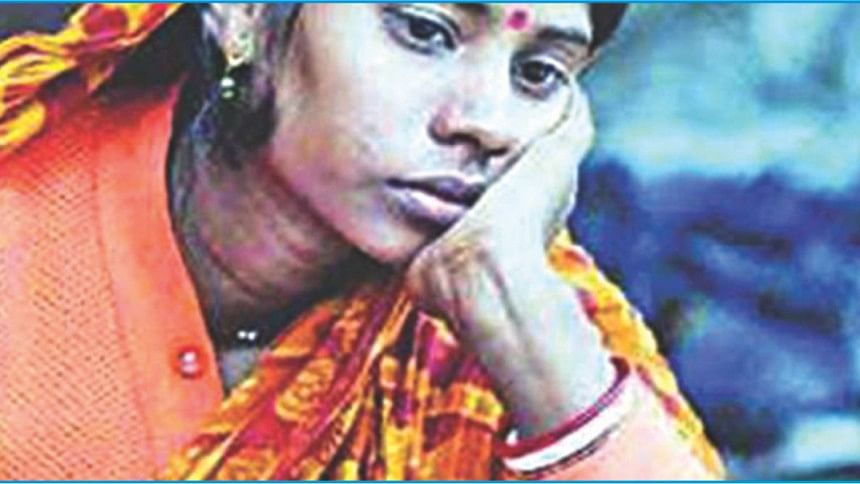Religious minorities and fake denials

Bangladesh inherited changes for the Muslim majority through the Muslim Family Laws Ordinance 1961 after it ceded from Pakistan. But when it comes to the Hindu minorities, urge for a better tomorrow always gets lost somewhere. The laws in our country do not require a Hindu marriage to be mandatorily registered. Hindu Marriage Registration Act 2012 has made registration of Hindu marriages only optional. Under Hindu Women's Right to Separate Residence and Maintenance Act, 1946 Hindu women have right to file cases in order to regain rights to conjugal life and to ask for separation on certain grounds. Surprisingly, they cannot ask for a divorce. Sounds offbeat, right?
In early 2015, a writ petition was filed on behalf of an aggrieved Hindu woman alleging violation of her fundamental rights due to inadequacy in the laws. The High Court Division issued a rule asking the Government as to why Hindu women will not be allowed to divorce their husbands. Unfortunately, like many progressive past decisions, this judgment has found its way in oblivion and in realm of academic discourses only. Only if it were a suo motu rule, the appreciation could ensue from more of a pro bono stand.
Likewise, the laws touching the personal lives of the Hindu majority in India have undergone innumerable changes over the years. A very recent change is the insertion of irretrievable breakdown or irreconcilable differences as a ground for dissolution of marriage (whereas ancient hinduism considers marriages as sacred and indissoluble bonds). The proposed Hindu Marriage Bill aimed at amending their existing laws to introduce the new ground for divorce. Even though the Government has already shelved the Bill, at least the fact that this bill was passed by Rajya Sabha proves how welcoming India is towards changes in the personal codes of the majority. But the minority Muslim women are still hopelessly awaiting a major change.
Including Bangladesh, eight muslim-majority countries have successfully ended the vile practice of triple talaq through legislation. And India, is resting (!) unsure about whether or not to bring about this change.
In 2002, in A.S.Parveen Akthar v The Union of India, Madras High Court dealt with the controversial issue of constitutionality of a provision of law validating triple talaq. The Court, even though was frank in condemning triple talaq, didn't declare section 2 of the Muslim Personal Law (Shariat) Application Act, 1937 void and unconstitutional since the same dealt with a personal law and the court thought it to fall within the purview of the doctrine of reasonable classification. The recent Allahabad case of 2016 regarding this issue is still unresolved and hence, a conclusion should not be drawn without knowing its effects.
In the South Asian region, surprisingly, Pakistan seems to be successfully striking a balance. The Hindu Marriage Bill 2017 has got the nod of approval from the president lately. This has incorporated provisions which are favorable for the marginalised Hindu minorities. In Nepal, Sri Lanka, Bhutan and Afghanistan, the respective minorities have been forcefully pushed to the fringes of the society.
Making a comparative constitutional analysis of the South Asian Region is not the aim of this article. An attempt, however, can be made to see the situation through the objective prism of Bangladeshi constitutionalism. Overlooking the need for a change for the minorities straightaway goes against the equality clauses and the broadly determined purview of right to life enshrined in the constitution.
In India, a sweeping argument for justifying not amending the laws of the Muslim minority was reasonable classification. This argument always derived from section 2 of the aforementioned 1937 Act which clearly says that personal relationships and certain other issues of a Muslim's life shall be governed by Muslim personal law. The courts and critics have always opined that Muslim personal law doesn't fall within the definition of 'law' under Article 13 of their constitution which is pari materia with our Article 26 and hence that law cannot be held unconstitutional. In absence of such a broad clause in the laws touching the lives of the Hindu minority of our country, the situation is different in our case. Hence the hyped debate of whether Hindu personal law comes within the purview of Article 26 won't even arise in our case. Laws enacted by the parliament do definitely fall within the definition of law and the same can be declared void because of its inconsistency with the constitution under Article 26(1).
The advancement undergone by the world till date may not be at all equal for all- equal for all three layers of the world, but denying the very fact of advancement for a particular group is outright discriminatory and sheer inequality. Doctrine of reasonable classification, in any case, cannot be used as a tool to justify this inequality. The ground depending on which the personal codes touching lives of the majority get amended, can work pretty fine in case of those of the minorities.
The writer is a Student of Law, University of Dhaka.

 For all latest news, follow The Daily Star's Google News channel.
For all latest news, follow The Daily Star's Google News channel. 



Comments